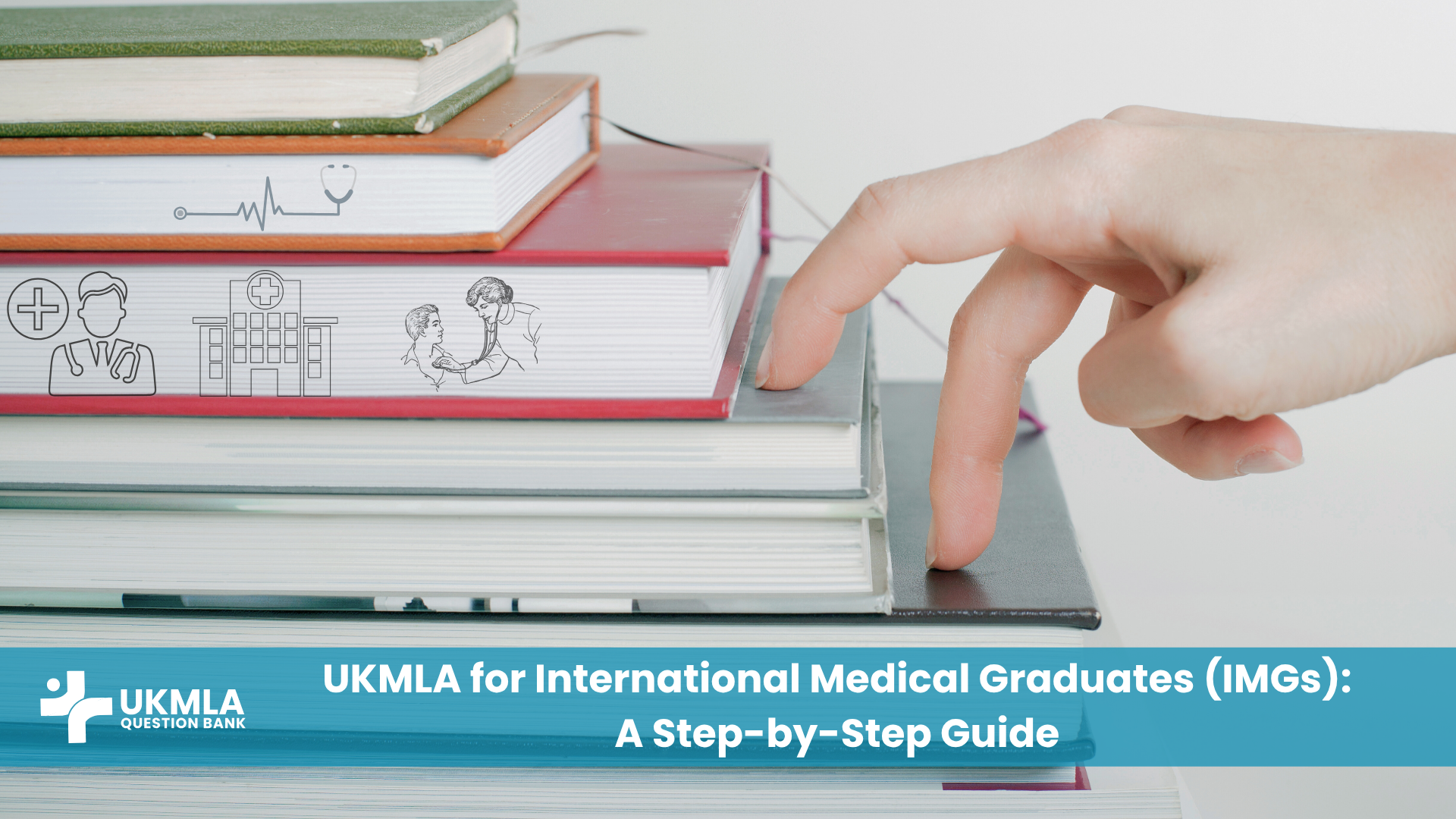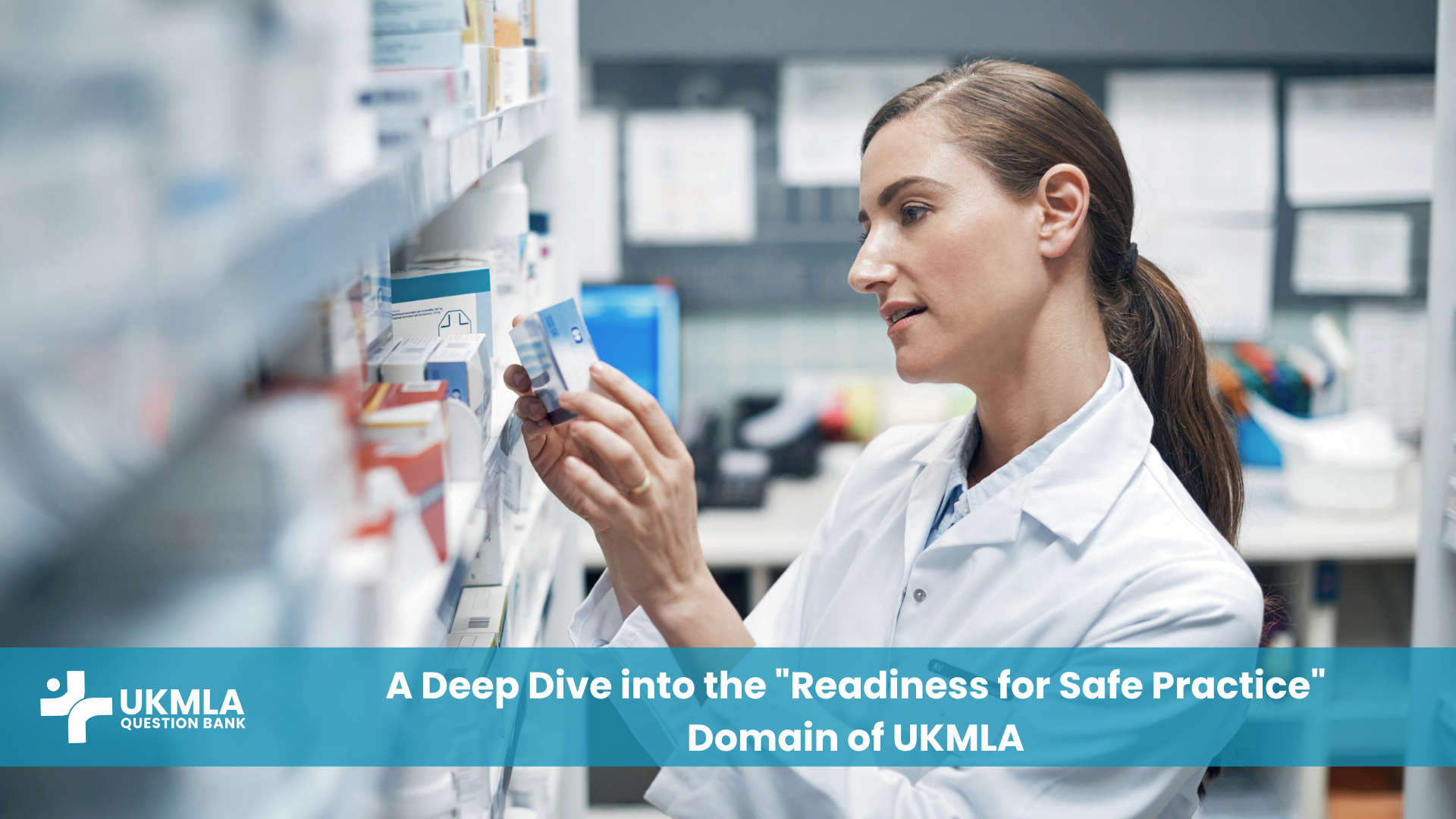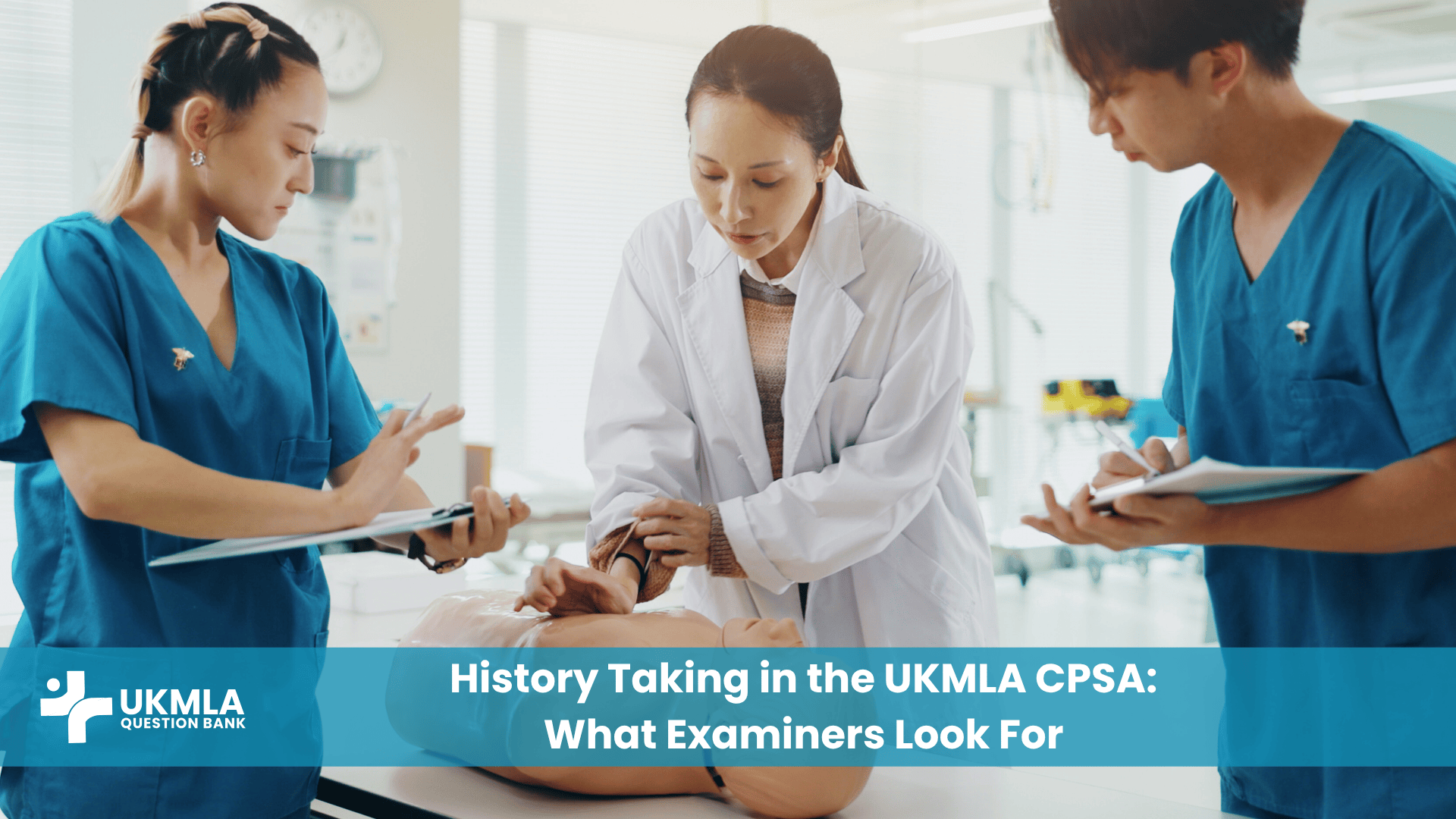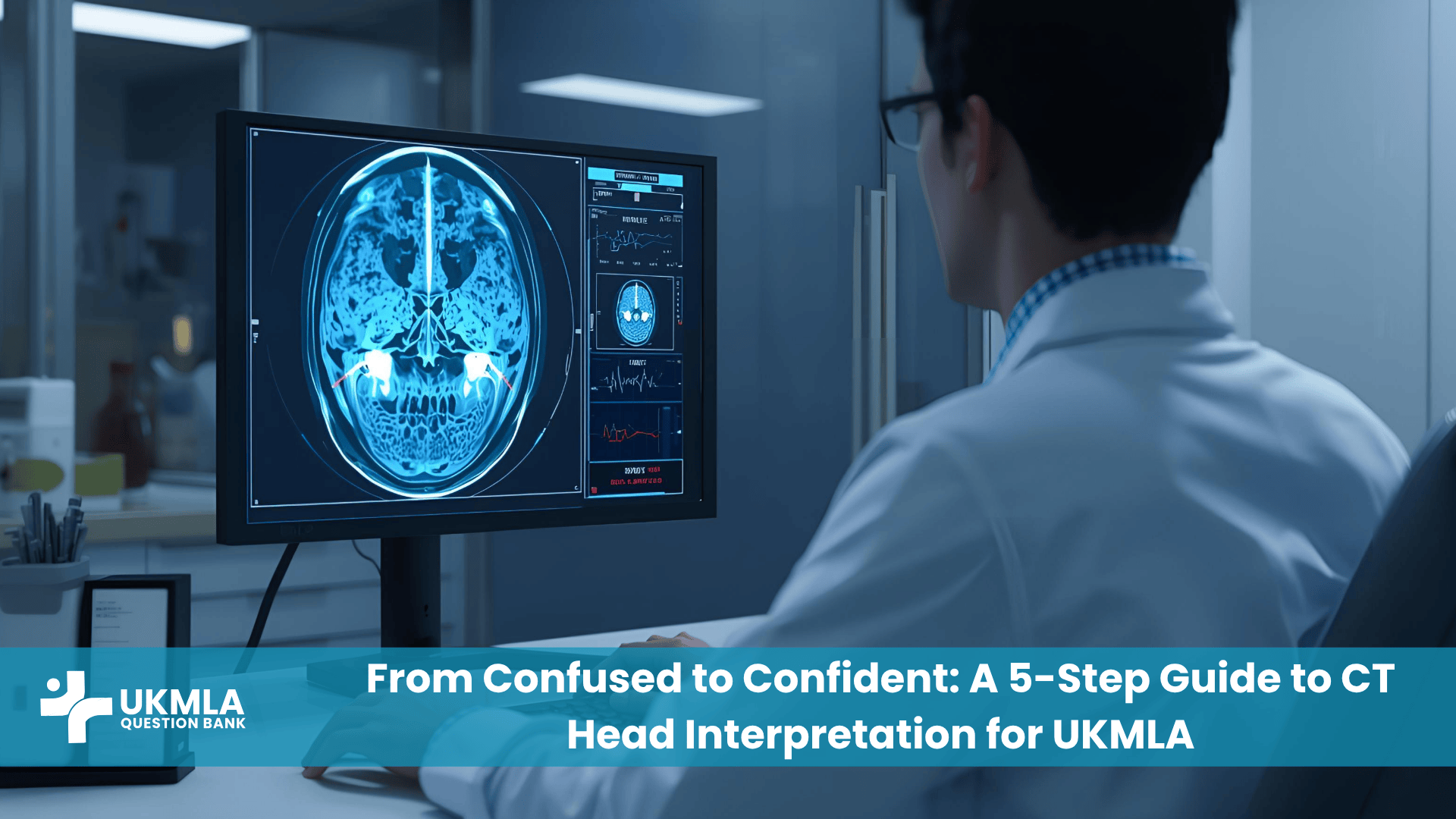Embarking on the journey to practise medicine in the United Kingdom as an International Medical Graduate (IMG) is an exciting prospect, filled with opportunities for professional growth and contribution to the renowned National Health Service (NHS). Central to this journey is the UK Medical Licensing Assessment (UKMLA). For IMGs, the UKMLA for IMGs pathway is the designated route to demonstrate the essential knowledge, skills, and professional behaviours required for GMC (General Medical Council) registration.
This step-by-step guide is meticulously designed to navigate IMGs through the entire UKMLA process, from initial eligibility checks to final registration. Understanding each phase is crucial for a smooth and successful transition. We’ll break down complex requirements into manageable steps, ensuring you are well-prepared for what lies ahead.
Understanding the UKMLA in the Context of IMGs
Before we dive into the steps, it’s important to reiterate what the UKMLA means specifically for you as an IMG. The UKMLA replaces the former PLAB (Professional and Linguistic Assessments Board) test. Its introduction aims to create a single, consistent standard for all doctors entering UK practice, whether they trained in the UK or overseas. This means the UKMLA for IMGs is structured to assess the same core competencies as those expected of UK medical graduates.
The assessment consists of two parts:
Applied Knowledge Test (AKT): A computer-based multiple-choice exam testing your ability to apply medical knowledge.
Clinical and Professional Skills Assessment (CPSA): An OSCE-style practical exam assessing clinical skills, communication, and professionalism.
Successfully passing both components is mandatory for GMC registration. For a foundational understanding, you might refer to our article, “[Decoding the UKMLA: Structure, Format, and Scoring Explained]”.
Step 1: Confirming Your Eligibility – The Starting Line
This is the most critical initial phase. Do not proceed with any bookings or in-depth preparation until you are certain you meet the fundamental UKMLA eligibility criteria for IMGs.
Action 1.1: Verify Your Primary Medical Qualification (PMQ).
Your medical degree must be from an institution listed on the World Directory of Medical Schools (WDOMS) and deemed acceptable by the GMC.
How-to: Use the GMC’s online checker for overseas medical qualifications.
Key Resource: Our detailed guide, “[Eligibility Criteria for UKMLA: A Comprehensive Checklist],” provides extensive information on this.
Action 1.2: Ensure You Have Graduated.
You must have been awarded your PMQ. Final-year students overseas are generally not eligible until they have officially graduated.
Action 1.3: Arrange PMQ Verification via ECFMG’s EPIC Service.
Your PMQ must be independently verified by the Educational Commission for Foreign Medical Graduates (ECFMG) through their Electronic Portfolio of International Credentials (EPIC).
How-to: Create an EPIC account and follow their verification process. This can take time, so start early.
Action 1.4: Demonstrate English Language Proficiency.
You need to pass an approved English language test:
IELTS Academic: Typically an overall score of 7.5, with at least 7.0 in each component.
OET (Medicine version): Typically at least Grade B in all four sub-tests.
How-to: Book and sit one of these tests. Ensure your scores meet the GMC’s minimum requirements.
Validity: Test results are usually valid for two years. Ensure yours will be valid when you apply for the UKMLA and later for GMC registration.
Action 1.5: Create a GMC Online Account.
This is essential for managing your application, booking exams, and receiving communications from the GMC.
Action 1.6: Prepare for Fitness to Practise Declarations.
Be ready to declare information regarding your health and good character, including any criminal convictions or disciplinary actions. Honesty is crucial.
Failing to meet any of these UKMLA for IMGs eligibility points can halt your progress.
Step 2: Preparing for and Booking the Applied Knowledge Test (AKT)
Once your eligibility is confirmed and your PMQ is verified (or verification is well underway), you can focus on the AKT.
Action 2.1: Understand the AKT Format and Content.
Familiarize yourself with the computer-based, multiple-choice (Single Best Answer) format.
Thoroughly study the GMC UKMLA Content Map. This is your syllabus. Our guide, “[The GMC UKMLA Content Map: Your Blueprint for Success],” is an essential read.
Action 2.2: Develop a Comprehensive Study Plan.
Allocate sufficient time (often 6-12 months, depending on your baseline knowledge).
Utilize high-quality resources: reputable question banks (such as those at ukmlaquestionbank.com), textbooks aligned with UK practice, and revision notes. Consider our “[Creating the Perfect UKMLA Study Plan: A 3-Month Template]” as a starting point, adjusting the duration as needed.
Focus on understanding UK clinical guidelines (e.g., NICE), medical ethics, and law.
Action 2.3: Book Your UKMLA AKT.
Booking is done through your GMC Online account.
The AKT can be taken at various test centers worldwide. Choose a date and location that suits you.
Be aware of booking windows and deadlines. Popular slots can fill up quickly.
Action 2.4: Intensive AKT Revision and Mock Exams.
Focus on practicing a large volume of SBA questions.
Take full-length mock AKT exams under timed conditions to simulate the real test. Our article “[UKMLA Mock Exams: Your Ultimate Key to Unlocking Top Scores…]” highlights their importance.
Analyze your performance in mocks to identify and address weak areas.
Step 3: Taking the UKMLA AKT and Receiving Results
Action 3.1: Exam Day Preparation.
Ensure you know the location of the test center and arrive on time.
Bring required identification as specified by the GMC.
Familiarize yourself with the exam day rules and what you can/cannot bring into the exam hall. Our “[UKMLA Exam Day Checklist: What to Bring and What to Expect]” will be useful.
Action 3.2: Taking the AKT.
Manage your time effectively during the exam.
Attempt every question, as there is typically no negative marking.
Action 3.3: Awaiting and Receiving Your AKT Results.
Results are usually released via your GMC Online account within a specified timeframe (typically several weeks).
The result will be a pass or fail.
Step 4: Preparing for and Booking the Clinical and Professional Skills Assessment (CPSA)
Once you have successfully passed the UKMLA AKT, you become eligible to apply for the CPSA.
Action 4.1: Understand the CPSA Format and Content.
The CPSA is an OSCE-style exam taken in the UK (usually Manchester).
It assesses clinical skills, communication, and professionalism through a series of timed stations.
Again, the GMC UKMLA Content Map is your guide to the types of scenarios and skills that can be tested.
Action 4.2: Develop a CPSA-Specific Study Plan.
This phase requires a different type of preparation, focusing on practical skills and communication.
Allocate several months for dedicated CPSA preparation.
Action 4.3: Key CPSA Preparation Strategies for IMGs.
Practice Clinical Skills: Regularly practice history taking, physical examinations (on peers, manikins), and common practical procedures.
Master Communication Skills: This is heavily weighted. Practice empathetic communication, explaining diagnoses, discussing management plans, breaking bad news, and obtaining consent in a UK context. Role-play is essential.
Study UK Ethics and Professionalism: Understand GMC’s Good Medical Practice and how to apply ethical principles in clinical scenarios.
Familiarize Yourself with the NHS Environment: Understand the roles of different healthcare professionals and common NHS pathways.
Consider a CPSA Preparation Course: Many IMGs find structured courses with mock OSCE stations beneficial.
Form Study Groups: Practicing with other IMGs preparing for the CPSA can be invaluable.
Action 4.4: Book Your UKMLA CPSA.
Booking is done through your GMC Online account once your AKT pass is confirmed, and you meet all other requirements.
CPSA places can be competitive, so book as early as possible once eligible.
You will need a UK visitor visa (if applicable) to travel to the UK for the CPSA. Factor this into your timeline.
Step 5: Taking the UKMLA CPSA and Receiving Results
Action 5.1: Travel and Accommodation for CPSA in the UK.
Plan your travel and accommodation in Manchester (or the designated CPSA location) well in advance.
Action 5.2: Exam Day Preparation for CPSA.
Dress professionally (as you would for clinical practice).
Bring required identification.
Arrive at the GMC clinical assessment centre on time.
Action 5.3: Taking the CPSA.
Stay calm and focus on each station individually.
Listen carefully to instructions and interact professionally with simulated patients and examiners.
Manage your time effectively within each station.
Action 5.4: Awaiting and Receiving Your CPSA Results.
Results are released via your GMC Online account, usually within a few weeks.
The result will be a pass or fail.
Step 6: Applying for GMC Registration
Congratulations! Once you have passed both the UKMLA AKT and CPSA, and have met all other requirements (including current English language evidence and identity checks), you can apply for GMC registration with a licence to practise.
Action 6.1: Gather All Required Documentation.
This will include your PMQ, evidence of English language proficiency, UKMLA pass results, certificates of good standing from medical regulatory authorities where you’ve practised, and identity documents.
The GMC provides a detailed list.
Action 6.2: Complete the GMC Registration Application Online.
Submit your application through your GMC Online account.
Pay the registration fee.
Action 6.3: Attend an Identity Check (if required).
The GMC may require you to attend an in-person identity check in the UK.
Action 6.4: Await GMC Decision.
The GMC will review your application and documentation. This process can take several weeks or months.
Step 7: Starting Your Medical Career in the UK
Once granted GMC registration, you are eligible to work as a doctor in the UK.
Action 7.1: Job Applications.
You can apply for suitable positions within the NHS or private sector. Many IMGs start in non-training posts to gain UK experience before applying for specialty training.
Action 7.2: Induction and Adaptation.
Familiarize yourself with your new workplace, NHS systems, and UK medical culture.
Many trusts offer induction programs for IMGs.
This UKMLA for IMGs step-by-step guide provides a roadmap. Remember that timelines can vary, and it’s crucial to stay updated with the latest information on the GMC website. For a broader look at what the UKMLA entails for all candidates, see our “[UKMLA 2025/2026: The Ultimate Guide for Medical Students & IMGs]”.
Frequently Asked Questions (FAQs) for IMGs on the UKMLA Pathway
This can vary significantly based on individual circumstances, preparation time needed, exam availability, and GMC processing times. Realistically, it can take anywhere from 1.5 to 3 years or more.
Generally, no. You need GMC registration to work as a doctor in the UK. Some IMGs might find roles like healthcare assistant or clinical observer to gain familiarity, but these are not medical practice roles.
An AKT pass is typically valid for a specific period (e.g., 2-3 years) within which you must pass the CPSA. Always check the current GMC rules.
Some highly experienced specialists with certain recognised postgraduate qualifications might be eligible for GMC registration via alternative routes (e.g., specialist registration through CESR). However, for most IMGs seeking general registration, the UKMLA is the standard pathway.
The GMC sets a maximum number of attempts for each component. It’s crucial to be aware of this limit. Previous PLAB attempts may count towards these limits.
For the AKT, common reasons include insufficient breadth of knowledge or difficulty with SBA application. For the CPSA, communication skills, lack of familiarity with UK clinical practice/ethics, or poor time management are often cited.
Many IMGs find UK-based CPSA courses beneficial as they offer practice with scenarios and feedback aligned with UK expectations and often use actors trained for medical OSCEs.
You will typically need a Standard Visitor visa that allows for taking professional exams. Ensure you apply for the correct visa type well in advance.
While there is demand for doctors in the NHS, finding your first job can still be competitive. Having strong UKMLA results, good references, and a well-prepared CV are important. Gaining some UK experience, even in a non-training role initially, can be helpful.
The official General Medical Council (GMC) website is the definitive source for all information regarding the UKMLA, eligibility, fees, exam dates, and registration.
Conclusion: Your Structured Path to UK Medical Practice
The journey through the UKMLA for IMGs is undoubtedly challenging, requiring dedication, meticulous preparation, and resilience. However, by breaking it down into these manageable steps and understanding the requirements at each stage, you can navigate the process with greater clarity and confidence.
From verifying your eligibility to passing the AKT and CPSA, and finally achieving GMC registration, each step is a significant milestone. Utilize the resources available, including the official GMC guidance and comprehensive preparation materials like those at ukmlaquestionbank.com. With a strategic approach, your aspiration to practise medicine in the UK can become a reality.




